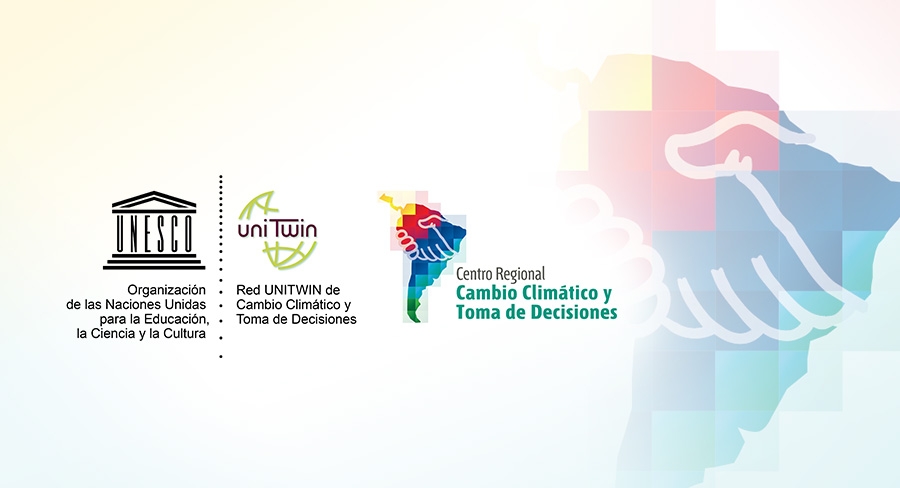Regional Centre on Climate Change and Decision-Making as UNESCO UNITWIN network

Climate Change is a reality striking the whole world, but specially affecting already vulnerable regions as is the case of Latin America. Scientific evidence is abundant and reveals that the region will face multiple challenges that will require innovative strategies and approaches which will eventually have to be led by decision-makers.
Within this context, the Regional Centre on Climate Change and Decision-Making has been working on strengthening public and private decision-making processes with the aim of facing the challenges and opportunities linked to climate change and the new economic and development models.
Since December 2018 the Center, conformed by universities, research and education institutions, as well as renown specialists in Latin America and whose host institution is represented by SARAS Institute, has officially been included to UNESCO’s University Twinning and Networking Programme (UNITWIN). This means being part of a global network that involves several education and research centers from across the world looking to efficiently contribute to the development of their societies.
The cooperation agreement with said UN programme sets as the main objectives: the promotion of education, training, research and the documentation of activities related to climate change and decision making through the generation of regional cooperation spaces, the development of educational interdisciplinary platforms and the facilitation of further dialogue and collaboration between researchers and specialists within and beyond the network.
In order to articulate such goals, the main project on which the Regional Centre on Climate Change and Decision-Making is working on is LatinoAdapta: “Strengthening the links between science and governments for the development of climate policies in Latin America”. This project, which has been funded by Canada’s International Development Research Centre (IDRC), seeks to strengthen the capacities of decision-makers in Latin America to implement climate policies based on scientific evidence and therefore, achieve the Nationally Determined Contributions (NDCs) in Argentina, Brazil, Chile, Costa Rica, Paraguay and Uruguay. The main strategy assumes that there is an abundance of knowledge on governance modes, financial mechanisms, climatic indicators and variables that may improve decision-making processes in climate policies and negotiations, but that the main problem lies beneath enabling this knowledge to decision-makers. As part of the activities developed within this project, a series of regional exchanges have begun so as to circulate knowledge, experiences and tools for the coordination, monitoring and evaluation, as well as further events and presentations aiming to foster information exchange and enable South-South collaboration. In the case of Uruguay, during the course of 2019 the project team will be working closely with the National System for Response to Climate Change and Variability (SNRCC acronym in Spanish), to foster dialogues between academia and institutions, in accordance with the National Policy on Climate Change.
Being part of the global UNITWIN network offers the opportunity to search for innovative solutions and enhance cooperation with various institutions as well as other relevant UNESCO programmes and chairs.
To learn more about the LatinoAdapta project, click here
To learn more about the Regional Centre on Climate Change and Decision-Making, click here (available in Spanish only)
